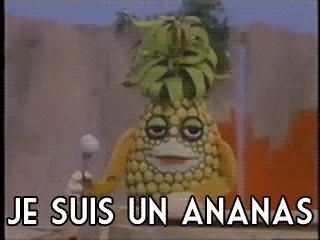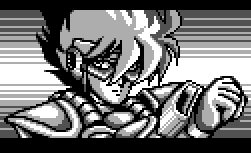French is wild, but it’s actually pretty easy to remember genders for appliances in particular. Generally, the more attractive the appliance, the less questionable its gender. Who could misgender a swamp cooler or a blender?
Generally, the more attractive the appliance, the less questionable its gender.
Lol what
You trying to tell me that you don’t know your toaster’s safe word?
Oh is that what that Cancel button is for?
No, you have to force the handle to the up position.
Well that certainly doesn’t sound consensual.
You’re jamming oiled-up bread into a device that has no means to expel unwanted fluids, and its only form of protest being to overcook your buns. What do you think?
Keep going…
It can be both ! You can either call it “un lave-linge” or “une machine à laver”.
Protip : french is misogynist
Just switch to German, I know it’s die Geschirrspülmaschine
Germans: German is such a beautiful language!
German:
It’s beautiful in its precision and how it constantly clears your throat

SEND THAT CUNT BACK TO HELL FROM WHENCE IT CAME
Telefrancais haunted my nightmares so badly as a child
My native language is gendered but I still don’t always know how I’m supposed to talk about male members of a species with a feminine name or vice versa.
“A person by the name of Mary was…” “Person” is masculine. Mary can hear me and I don’t want to offend her. “Was” has a masculine and a feminine form.
I think the masculine form of “was” would be technically correct, but then do I have to use masculine pronouns? “A person by the name of Mary was there and he…” The real answer is to rephrase what I said to avoid awkward grammar.
i thought gendered languages had two genders for words like “person” so you could make the swap when the gender is known
e.g. un person / une personne
Not always, no. In French, “a person” is “une personne”. It’s a feminine noun — always feminine — and it’s perfectly fine to use it for a man, because what matters here is the gender of the word itself. “An individual” is “un individu” — always masculine, even of the individual in question could be a man. A sentry is “une sentinelle”; it’s a feminine word, even though most sentinels are probably men, considering the gender ratio in the army. This dude is une sentinelle. If you add adjectives, you would use the feminine form so that it matches the word sentinelle: “a sleepy sentry” is “une sentinelle somnolente”.
That said, many (most?) words refering to human beings have feminine and masculine versions. That’s the case for most job names. The baker = le boulanger / la boulangère. The mailman = le facteur, the mailwoman = la factrice. Those words often have an ending that signals the gender (-teur is obviously masculine, -trice the feminine equivalent). Some job names are identical for both genders, but with different articles depending on the gender of the worker you’re talking about: for example the despicable Élisabeth Borne is une ministre, and the spawn-of-hell Bruno Retailleau is un ministre. Words that describe family relationships are mostly gendered too (le cousin / la cousine).
“A wasp” is “une guêpe”. It’s feminine for male as well as for female wasps, although you can add “mâle” or “femelle” if you need to be more specific. “How to recognise a male wasp?” translates as “Comment reconnaître une guêpe mâle ?”, whereas the sentence “Comment reconnaître un guêpe mâle ?” is a blatant grammatical error that no native speaker would make, because the word “guêpe” is of feminine gender, even if the specific wasp you’re talking about happens to be a male.
Some species have different words for male and female specimens. “A sheep” is “un mouton” (masculine). A male sheep would be called “un bélier” (masculine), a female sheep “une brebis” (feminine). If I say “un bélier”, you know that I’m talking about a male sheep, but if I say “un mouton”, you can’t know whether it’s male or female, despite the fact that the word is grammatically masculine. “A cat” is “un chat” (masculine). A female cat is “une chatte” (feminine), but it would be fine to call a female cat “un chat” (masculine) too, because it’s the generic name for the species. In fact, some people make a point of always calling female cats “un chat” because une chatte is also slang for female genitalia.
Sorry for the block of text, and congratulations if you’ve read this far. :-)
Edit: Why did I write all of this on a two-month old post.
lol it’s old but it’s still a thoughtful reply thank you
Doesn’t it depend on if it’s a top load or bottom load model?
These days with everything being LGBTQIAOMGWTFBBQ++++++++, no, not even remotely.
My washing machine is only A+++
Very very very asexual?
*Aromantic
Your washing machine still tosses (clothing) salad on a regular basis.

